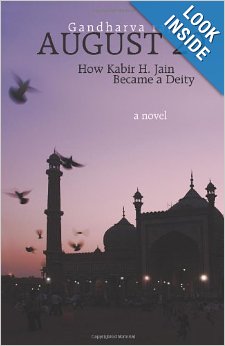August 29
It was a day to remember, a day to forget; a day when life struggled to breathe through death’s chokehold and survived; a day when death was diminished in the knowledge that it was he who was transient, and life that is eternal. It was a day to mourn, a day to rejoice. It was the night when the sky shone brighter than day, and succeeding days brighter than thirty million years ago when God created earth and flooded it with light. It was as if a searchlight on Mount Everest had spread light through the shadows of the universe so women, men, and children could walk into the gloomiest nook and cavern and not be afraid. Seven years have passed since that night of August 29. As I sat on the chair by the window of our flat in the Daria Ganj section of New Delhi looking out at the mosque hazily outlined in the distance, Milli stood behind me, her hand resting gently on my shoulder. . . . The view of the mosque from our living room window kept alive the recollection of that day, distinct as the creases on my palms. Neither time nor distance had erased a word, a sound, a prayer, or a moan.
“What Gandharva raja has written is an outline of the history, the social psychology, and the anthropology of religions. It is simply brilliant”.
-Donald B. Gibson, Professor Emeritus, Department of English, Rutgers University
